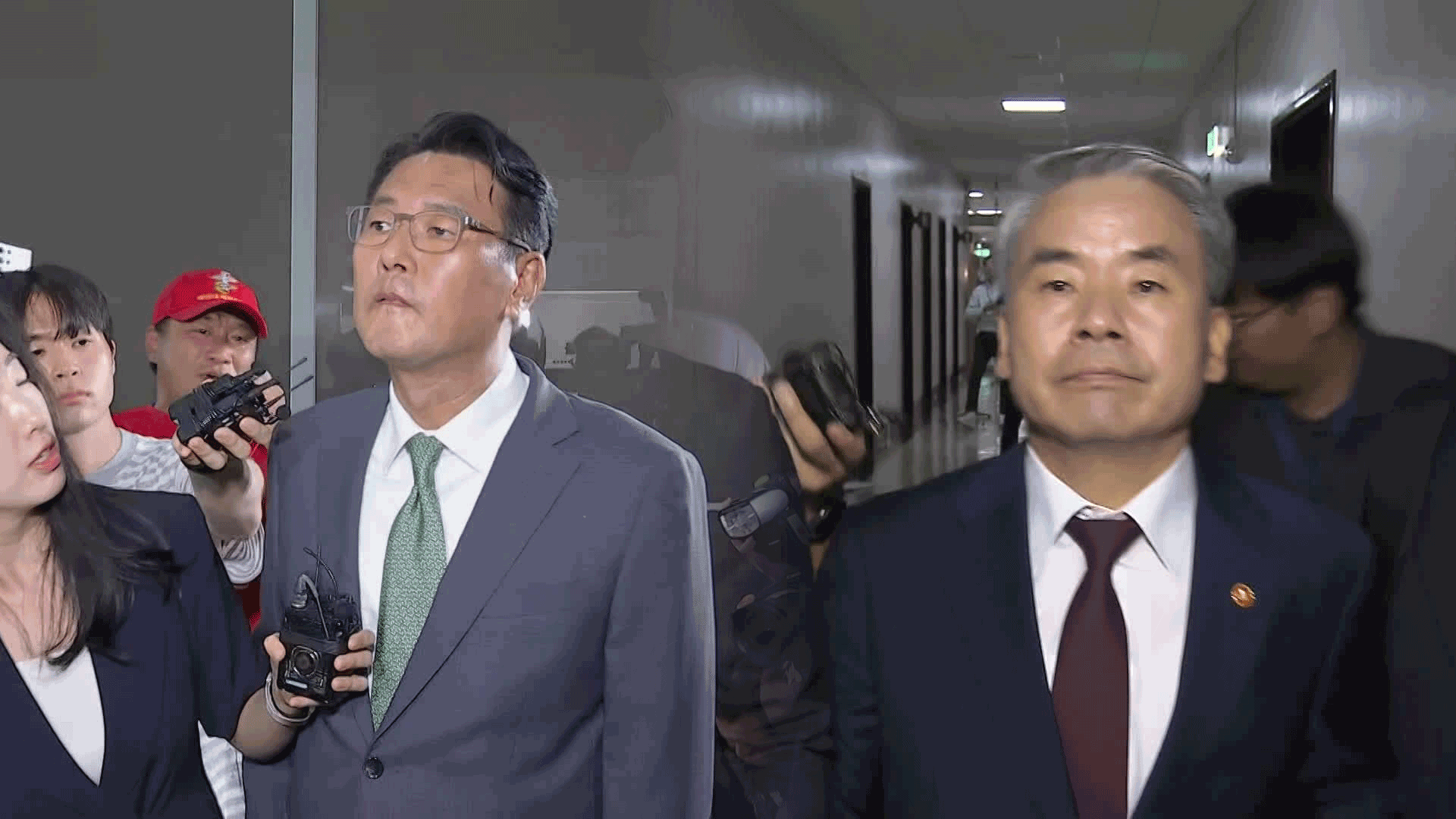Service Fees
입력 2018.10.08 (15:13)
수정 2018.10.08 (15:25)
읽어주기 기능은 크롬기반의
브라우저에서만 사용하실 수 있습니다.
[Anchor Lead]
When paying your bill at hotels, the charge not only includes taxes but also what's called a service fee. Following public complaints over tipping charge in 1979, the then Transport Ministry issued an administrative order to collect "service fees" instead. This practice has continued for 40 years. The National Assembly Research Service has assessed that it's not right to charge the fee citing the absence of any legal basis.
[Pkg]
A meal is ordered at a five-star hotel. There is no complimentary service, other than some bread served as appetizer and water being poured. However the bill shows the cost of the meal, tax and then a 10 percent service fee. Some hotels say they don't charge such service fees.
[Soundbite] (Official at one of these hotels(voice altered)) : "We believe good service is a given and we do not include those charges."
Hotels that do indicate a service charge in their receipts are those that have been around for many years. Foreign branded hotels that have recently opened or newly renovated hotels do not charge this particular fee. However it wasn't what they said when KBS tried to book a hotel room through an online reservation site. This hotel is known not to charge service fees. But the final bill shows a service charge has been included. On news of KBS coverage, the reservation site removed the service charge item, saying it was a processing blunder. The Fair Trade Commission considers the service charge as deceiving to consumers but is not taking any particular measures against it. Meanwhile the National Assembly Research Service has issued an opinion that it's not right to charge the fees without any legal basis and which only confuse consumers. The service said that charging the fees customarily due to an administrative order that lacks legal foundation is a violation of consumer rights. Related consumer complaints continue to increase, numbering some 13-thousand last year, and ten-thousand in this year's first half alone.
When paying your bill at hotels, the charge not only includes taxes but also what's called a service fee. Following public complaints over tipping charge in 1979, the then Transport Ministry issued an administrative order to collect "service fees" instead. This practice has continued for 40 years. The National Assembly Research Service has assessed that it's not right to charge the fee citing the absence of any legal basis.
[Pkg]
A meal is ordered at a five-star hotel. There is no complimentary service, other than some bread served as appetizer and water being poured. However the bill shows the cost of the meal, tax and then a 10 percent service fee. Some hotels say they don't charge such service fees.
[Soundbite] (Official at one of these hotels(voice altered)) : "We believe good service is a given and we do not include those charges."
Hotels that do indicate a service charge in their receipts are those that have been around for many years. Foreign branded hotels that have recently opened or newly renovated hotels do not charge this particular fee. However it wasn't what they said when KBS tried to book a hotel room through an online reservation site. This hotel is known not to charge service fees. But the final bill shows a service charge has been included. On news of KBS coverage, the reservation site removed the service charge item, saying it was a processing blunder. The Fair Trade Commission considers the service charge as deceiving to consumers but is not taking any particular measures against it. Meanwhile the National Assembly Research Service has issued an opinion that it's not right to charge the fees without any legal basis and which only confuse consumers. The service said that charging the fees customarily due to an administrative order that lacks legal foundation is a violation of consumer rights. Related consumer complaints continue to increase, numbering some 13-thousand last year, and ten-thousand in this year's first half alone.
■ 제보하기
▷ 카카오톡 : 'KBS제보' 검색, 채널 추가
▷ 전화 : 02-781-1234, 4444
▷ 이메일 : kbs1234@kbs.co.kr
▷ 유튜브, 네이버, 카카오에서도 KBS뉴스를 구독해주세요!
- Service Fees
-
- 입력 2018-10-08 15:13:52
- 수정2018-10-08 15:25:05

[Anchor Lead]
When paying your bill at hotels, the charge not only includes taxes but also what's called a service fee. Following public complaints over tipping charge in 1979, the then Transport Ministry issued an administrative order to collect "service fees" instead. This practice has continued for 40 years. The National Assembly Research Service has assessed that it's not right to charge the fee citing the absence of any legal basis.
[Pkg]
A meal is ordered at a five-star hotel. There is no complimentary service, other than some bread served as appetizer and water being poured. However the bill shows the cost of the meal, tax and then a 10 percent service fee. Some hotels say they don't charge such service fees.
[Soundbite] (Official at one of these hotels(voice altered)) : "We believe good service is a given and we do not include those charges."
Hotels that do indicate a service charge in their receipts are those that have been around for many years. Foreign branded hotels that have recently opened or newly renovated hotels do not charge this particular fee. However it wasn't what they said when KBS tried to book a hotel room through an online reservation site. This hotel is known not to charge service fees. But the final bill shows a service charge has been included. On news of KBS coverage, the reservation site removed the service charge item, saying it was a processing blunder. The Fair Trade Commission considers the service charge as deceiving to consumers but is not taking any particular measures against it. Meanwhile the National Assembly Research Service has issued an opinion that it's not right to charge the fees without any legal basis and which only confuse consumers. The service said that charging the fees customarily due to an administrative order that lacks legal foundation is a violation of consumer rights. Related consumer complaints continue to increase, numbering some 13-thousand last year, and ten-thousand in this year's first half alone.
When paying your bill at hotels, the charge not only includes taxes but also what's called a service fee. Following public complaints over tipping charge in 1979, the then Transport Ministry issued an administrative order to collect "service fees" instead. This practice has continued for 40 years. The National Assembly Research Service has assessed that it's not right to charge the fee citing the absence of any legal basis.
[Pkg]
A meal is ordered at a five-star hotel. There is no complimentary service, other than some bread served as appetizer and water being poured. However the bill shows the cost of the meal, tax and then a 10 percent service fee. Some hotels say they don't charge such service fees.
[Soundbite] (Official at one of these hotels(voice altered)) : "We believe good service is a given and we do not include those charges."
Hotels that do indicate a service charge in their receipts are those that have been around for many years. Foreign branded hotels that have recently opened or newly renovated hotels do not charge this particular fee. However it wasn't what they said when KBS tried to book a hotel room through an online reservation site. This hotel is known not to charge service fees. But the final bill shows a service charge has been included. On news of KBS coverage, the reservation site removed the service charge item, saying it was a processing blunder. The Fair Trade Commission considers the service charge as deceiving to consumers but is not taking any particular measures against it. Meanwhile the National Assembly Research Service has issued an opinion that it's not right to charge the fees without any legal basis and which only confuse consumers. The service said that charging the fees customarily due to an administrative order that lacks legal foundation is a violation of consumer rights. Related consumer complaints continue to increase, numbering some 13-thousand last year, and ten-thousand in this year's first half alone.
이 기사가 좋으셨다면
-
좋아요
0
-
응원해요
0
-
후속 원해요
0

















이 기사에 대한 의견을 남겨주세요.